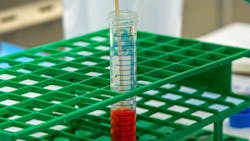Research notes high toxin levels linked to more severe C. difficile infection
Researcher-physicians at Beth Israel Deaconess Medical Center (BIDMC) used a test to measure the amount of toxin produced by C. difficile in the stool of patients with suspected infections.
While prior studies had shown a possible association between stool toxin levels and clinical outcomes, this study demonstrated that the concentration of C. difficile toxins influences disease severity, the researchers said.
The team followed the patients — who were hospitalized at BIDMC and at Texas Medical Center in Houston — for 40 days after the onset of infection. The team found that the concentration of C. difficile toxins in the stool was linked to how sick patients were at the time of diagnosis and was also associated with adverse outcomes, including the risk of the infection returning after treatment.
C. difficile, or “C. diff,” can cause diarrhea and inflammation of the large intestine. Most often affecting patients who are older and/or have weakened immune systems, C. difficile infections are especially common among hospitalized patients and in patients who have recently completed a course of antibiotics. While several tests can detect the presence of C. difficile, healthy people can harbor the bacterium without becoming ill.
“It is well-recognized that C. difficile-associated diarrhea and colitis are caused by toxins A and B,” said co-lead author Ciarán P Kelly, MD, Medical Director of the Celiac Center at BIDMC and Professor of Medicine at HMS. “However, this study clearly shows that toxin quantities are associated with baseline disease severity as well as negative outcomes such as need for admission to the ICU and/or death. Hence, measuring toxin concentrations in stool can help physicians to predict the likely course of the illness and plan their management steps accordingly.”

